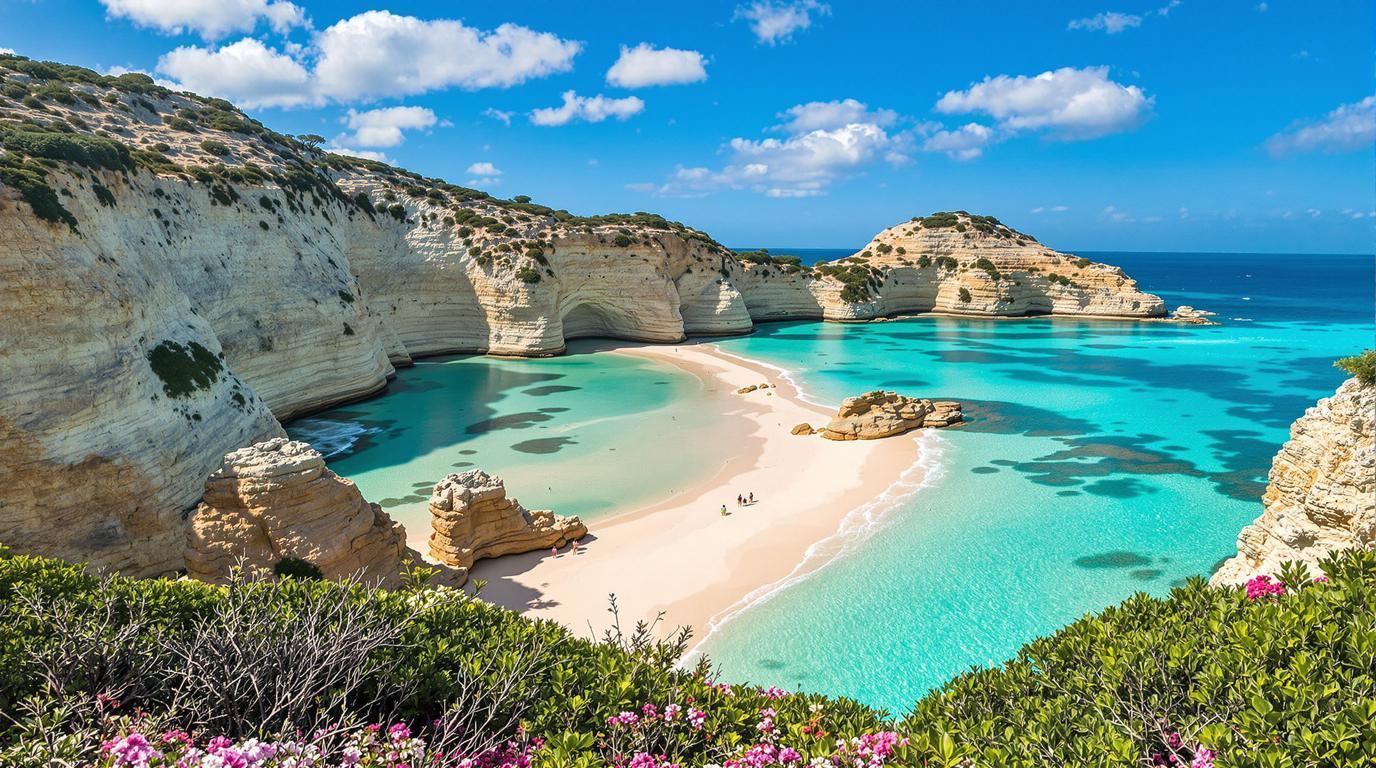The 65 residents of Herm Island have watched their car-free paradise transform from a local secret into a coveted escape. Yet unlike other Channel Islands destinations, this 2km² haven maintains an unspoken understanding: tourism must remain respectful, limited, and protective of what makes Herm extraordinary.
Ferry operators quietly admit that Herm’s accessibility constraints aren’t accidental. The £18 adult fare from Guernsey, combined with weather-dependent schedules, creates a natural filter that locals appreciate. When storms cancel sailings, residents exhale with relief.
What emerges is a destination where authentic island life persists precisely because mass tourism simply cannot take hold. The community’s protective instincts have preserved something remarkable: Britain’s last truly unspoiled island paradise.
The ferry barrier locals quietly celebrate
Weather-dependent access protects authenticity
Herm’s residents understand that rough Channel weather serves as their greatest ally. When 25mph winds cancel the 07:30 departure, day-trippers abandon their plans while locals continue their peaceful routines. The island’s exposure to Atlantic swells means ferry services halt frequently, creating natural tourism breaks that preserve community rhythms.
Limited capacity maintains island character
Travel Trident’s vessels carry maximum 200 passengers per sailing, but locals know the real capacity lies in Herm’s infrastructure. With no cars, limited accommodation, and just three dining establishments, the island cannot support cruise ship numbers. This constraint delights residents who remember when tourism meant respectful day visitors, not overwhelming crowds.
The car-free policy residents fiercely guard
No exceptions preserve peaceful atmosphere
Herm’s 65 residents maintain their car-free environment through community consensus rather than enforcement. Emergency vehicles arrive by special ferry arrangement, but no private cars have touched Herm’s soil in decades. Residents transport goods using quad bikes and trailers, creating a system that works precisely because it excludes tourist vehicles.
Walking-only access filters visitor types
The island’s walking-only policy naturally attracts visitors who appreciate slow travel and environmental preservation. Residents observe that tourists willing to explore on foot tend to respect local customs and natural habitats. This self-selection process maintains the type of tourism that enhances rather than overwhelms community life.
The accommodation limits that protect daily life
Camping restrictions maintain tranquil nights
Herm permits camping only in designated areas with advance bookings, ensuring residents enjoy peaceful evenings without unauthorized tent cities. The island’s single hotel, the White House, accommodates just 40 guests maximum. This limitation means locals never face the noise, litter, or disruption that plague other British coastal destinations.
Seasonal closure preserves winter community
From November through February, Herm’s tourism infrastructure essentially closes, returning the island to its 65 permanent residents. During these months, community bonds strengthen while natural habitats recover from summer visitor pressure. Residents treasure this annual renewal that maintains their island’s authentic character.
The cultural preservation locals prioritize
Traditional fishing practices continue undisturbed
Herm’s fishing families maintain centuries-old practices that tourism could easily disrupt. Residents protect traditional crab and lobster fishing grounds from recreational interference, ensuring sustainable harvests that support local families. These practices represent cultural continuity that locals refuse to compromise for tourist entertainment.
Natural habitat protection guides tourism decisions
The island’s puffin colonies, seal populations, and rare plant communities receive priority over visitor convenience. Residents celebrate when breeding seasons limit beach access, understanding that environmental protection ultimately preserves Herm’s appeal. This conservation ethic attracts visitors who share similar values while discouraging those seeking typical resort experiences.
Herm’s residents have discovered that protection creates paradise. By maintaining ferry-dependent access, car-free policies, and accommodation limits, they’ve preserved an island where authentic community life coexists with respectful tourism. Their protective instincts ensure that visitors encounter genuine tranquility rather than commercialized recreation.
For travelers seeking this protected paradise, respect for local customs and environmental limits becomes the entry fee. Herm’s 65 residents don’t want tourists to avoid their island—they want visitors who understand that true paradise requires preservation, not exploitation.
Planning your respectful visit to Herm
What’s the best time to visit Herm without overwhelming locals?
May through September offers ideal weather, but shoulder months like April and October provide better ferry reliability with fewer crowds. Locals appreciate visitors who choose off-peak times when island services aren’t strained.
How do I book the ferry to Herm Island?
Travel Trident operates regular services from St Peter Port, Guernsey, with standard adult fares at £18. Early bird departures at 07:30 cost £14 for same-day returns. Book online or at Guernsey’s harbor terminal.
Are there accommodation options on Herm Island?
The White House Hotel offers the only indoor accommodation, while designated camping areas require advance booking. Many visitors stay on Guernsey and make day trips, reducing pressure on Herm’s limited facilities.
What should I know about Herm’s car-free policy?
Absolutely no private vehicles are permitted. Walking and cycling represent the only transport options for visitors. This policy maintains the island’s peaceful atmosphere and protects its natural environment.
How can I visit Herm responsibly?
Respect marked paths, avoid disturbing wildlife during breeding seasons, and pack out all rubbish. Choose local accommodation and dining options to support the community that preserves this remarkable island paradise.
